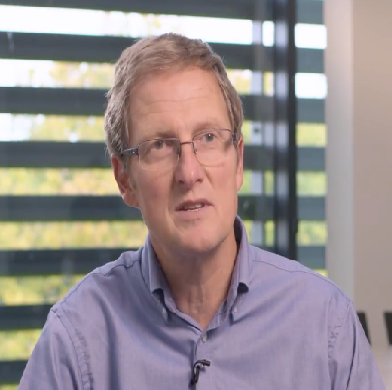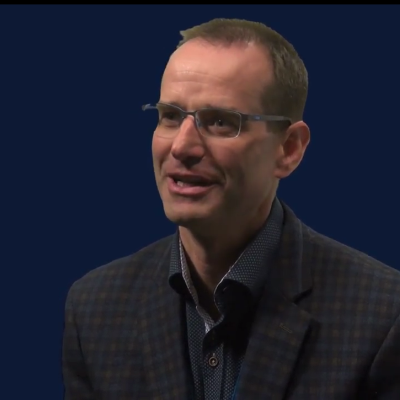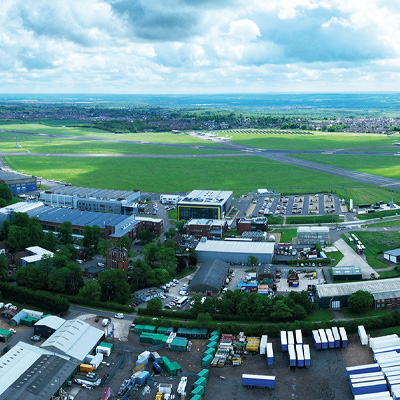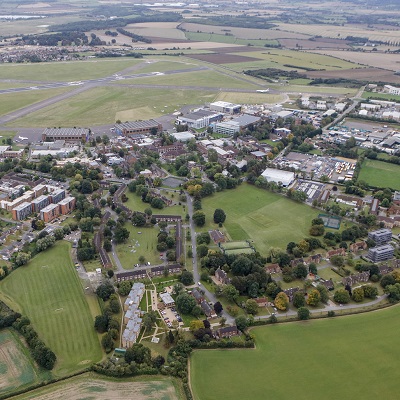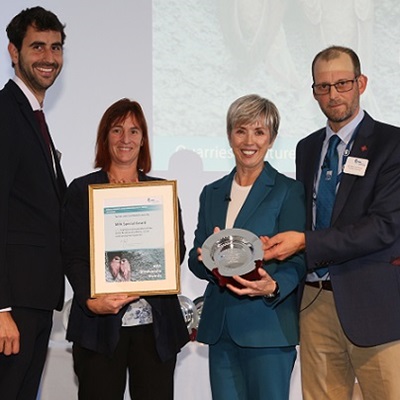Ways to meet us
Develop your career as a highly sought after environmental engineer
Suitable for graduates in engineering, science, and geography, the Environmental Engineering MSc will help you enhance your career by specialising in environmental engineering studies, involving the application of scientific and engineering principles to protect and improve the environment. Accredited by CIWEM and IAgrE, this course will equip you with the knowledge and skills required to solve a wide range of environmental engineering challenges and make a real difference to the planet, - including municipal and toxic waste management and disposal, process emissions, contaminated land and water, waste disposal, energy, and resource recovery. Cranfield offers a unique, postgraduate-only environment where you will learn from a teaching team with extensive experience of solving real-world environmental challenges.Overview
- Start dateFull-time: October, part-time: October
- DurationOne year full-time, two-three years part-time
- DeliveryTaught modules 80 credits/800 hours, Group projects 40 credits/400 hours, Individual project 60 credits/600 hours
- QualificationMSc, PgDip, PgCert
- Study typeFull-time / Part-time
- CampusCranfield campus
Who is it for?
The Environmental Engineering MSc is designed for science, engineering, and geography graduates who are passionate about the protection and improvement of environmental quality alongside enhancing the quality of human life.
We also welcome graduates currently in employment who are keen to gain further qualifications or to pursue a career change, or individuals with other qualifications and considerable relevant experience.
During the Environmental Engineering masters, you will learn principles of environmental improvements, including the protection of environmental quality at both local, landscape and global scales.
Your career
With the current global focus on the full range of environmental issues, graduates of this course can expect to be highly sought after by employers. Equipped with the advanced knowledge and management skills to analyse processes, principles, and practices essential to environmental challenges, you will have opportunities to pursue careers across a wide range of industrial and public organisations.
Successful graduates have been able to pursue or enhance careers in a variety of key areas such as:
- Environmental Scientist,
- Waste Consultant/Environmental Consultant/Environmental Quality and Compliance Consultant/Research Consultant,
- Site Engineer/Risk Prevention and Environmental Engineer/Project Engineer/Research Engineer,
- Environmental Project Manager,
- Supply Chain Manager,
- Digital and Analytics Specialist.
Some graduates have also followed the academia route through progression onto PhD study.
Previous students have gone on to jobs within prestigious institutions including:
Cranfield Careers and Employability Service
Cranfield’s Career Service is dedicated to helping you meet your career aspirations. You will have access to career coaching and advice, CV development, interview practice, access to hundreds of available jobs via our Symplicity platform and opportunities to meet recruiting employers at our careers fairs. Our strong reputation and links with potential employers provide you with outstanding opportunities to secure interesting jobs and develop successful careers. Support continues after graduation and as a Cranfield alumnus, you have free life-long access to a range of career resources to help you continue your education and enhance your career.
Why this course?
A masters in Environmental Engineering will equip you with the knowledge and skills focusing on innovative approaches and technologies to solve a wide range of future sustainability challenges to fulfil sustainable development goals. The course covers municipal and hazardous waste management, process emissions control, contaminated land, water, wastewater, and waste disposal. The programme also addresses energy and resource recovery from waste materials.
- Study a course with accreditation by the Chartered Institution of Water and Environmental Management (CIWEM), and the Institution of Agricultural Engineers (IAgrE).
- Benefit from Cranfield’s applied focus by working on real-world problems faced in industry during your studies.
- Participate in individual and group projects focused on your personal interests and career aspirations.
- Learn from lecturers with extensive, current experience of working with industry on solving real-world environmental challenges.
- Technical modules incorporate a range of industry relevant topics, including Process Emission and Control and Engineering Mathematics.
- Management modules cover essential topics such as Waste Management in a Circular Economy: Reuse, Recycle, Recover and Dispose.
Informed by industry
The Environmental Engineering MSc is closely aligned with industry to ensure that you are fully prepared for your new career.
- An Industrial Advisory Board for the programme scrutinises course content and ensures its relevance to the needs of global employers.
- Industry practitioners contribute directly to the course by teaching alongside academics from Cranfield ensuring the relevance of course content to the professional world.
- Sixty percent of the course is focused on applied research projects including group projects (20%) and an individual thesis project (40%); both also supported by industry and environmental sector organisations.
Course details
The modules include lectures and tutorials, and are assessed through examinations and assignments. There is an emphasis on analysis of real problems. Students undertaking the Postgraduate Diploma (PgDip) complete the seven modules and the group project. Postgraduate Certificate (PgCert) students are required to complete six of the eight modules.
MSc course structure:
Course delivery
Taught modules 80 credits/800 hours, Group projects 40 credits/400 hours, Individual project 60 credits/600 hours
Group project
The group project experience is highly valued by both students and prospective employers. It provides students with the opportunity to take responsibility for a consultancy-type project, working within agreed objectives, deadlines and budgets. For part-time students a dissertation or projects portfolio can replace the group project.
Recent group projects include:
- Feasibility study: environmental and run-off attenuation reservoir at Roxhill Manor Farm, Cranfield
- An Integrated Assessment of the Mancetter Quarry Restoration, funded by Lafarge-Tarmac
- Integrated Assessment of Quarry Restoration for Broom and Finningley, funded by Tarmac
Individual project
The individual thesis project, usually undertaken in collaboration with an external organisation, offers you the opportunity to develop your research capability, your understanding of the subject and your ability to provide solutions to real-world problems in environmental engineering.
Modules
Keeping our courses up-to-date and current requires constant innovation and change. The modules we offer reflect the needs of business and industry and the research interests of our staff and, as a result, may change or be withdrawn due to research developments, legislation changes or for a variety of other reasons. Changes may also be designed to improve the student learning experience or to respond to feedback from students, external examiners, accreditation bodies and industrial advisory panels.
To give you a taster, we have listed the compulsory and elective (where applicable) modules which are currently affiliated with this course. All modules are indicative only, and may be subject to change for your year of entry.
Course modules
Compulsory modules
All the modules in the following list need to be taken as part of this course.
Sustainable Environmental Solutions
| Module Leader |
|
|---|---|
| Aim |
This module aims to introduce you to the real-world environmental solutions that are being developed and/or already in use, to enable them to enter a number of sectors with up-to-date knowledge of current approaches. |
| Syllabus |
|
| Intended learning outcomes |
On successful completion of this module you should be able to:
|
Pollution Prevention and Remediation Technologies
| Module Leader |
|
|---|---|
| Aim |
The module introduces the extent and consequences of pollution in the environment, identifies and evaluates technologies for prevention and remediation and exposes students in using decision support tool and modelling to deal with pollution prevention and remediation. |
| Syllabus |
|
| Intended learning outcomes |
On successful completion of this module you should be able to:
|
Elective modules
One of the modules from the following list needs to be taken as part of this course.
Principles of Engineering
| Module Leader |
|
|---|---|
| Aim |
|
| Syllabus |
You will cover a number of fundamental aspects of engineering, applied to sustainable development systems. This will include applications in the energy, water and environmental sectors, thus will focus on sustainable development goals and the net zero targets. Topics covered throughout the module will include: |
| Intended learning outcomes |
On successful completion of this module you should be able to:
|
GIS and Spatial Data Management
| Module Leader |
|
|---|---|
| Aim |
|
| Syllabus |
Spatial data models and database structures – vectors, rasters, topology, ordered and indexed lists, hierarchical, network, relational, object oriented, hybrid, metadata. |
| Intended learning outcomes |
On successful completion of this module you should be able to:
|
Principles of Sustainability
| Module Leader |
|
|---|---|
| Aim |
Human population growth and increased resource use per capita requires improved management of our global ecosystem. Approaches such as the “Sustainable Development Goals”, “Natural Capital”, “Ecosystem Services”, and “Planetary Boundaries” provide frameworks for businesses and wider society to resolve the synergies and trade-offs between major economic, environmental and social challenges. The “Circular Economy” approach refers to the development of “restorative” industrial systems that are grounded on the lessons of non-linear, feedback-rich ecosystems. The third approach is to explore the nexus between renewable energy, food, and other ecosystem services using per capita energy and food consumption. This module introduces and critiques the above frameworks and examines their application to resolve real-world problems and create commercial opportunities. |
| Syllabus |
|
| Intended learning outcomes |
On successful completion of this module you should be able to:
|
Elective modules
One of the modules from the following list needs to be taken as part of this course.
Health, Safety and Environmental Risk
| Module Leader |
|
|---|---|
| Aim |
|
| Syllabus |
|
| Intended learning outcomes |
On successful completion of this module you should be able to:
|
Scientific Python
| Module Leader |
|
|---|---|
| Aim |
|
| Syllabus |
Fundamentals of programming. |
| Intended learning outcomes |
On successful completion of this module you should be able to: Explain how computer code is used in science and engineering. Create Python code for solving set problems and develop confidence in writing code for your own projects. Analyse data using Python libraries and visualise results as graphs, maps and interactive figures. |
Elective modules
One of the modules from the following list needs to be taken as part of this course.
Modelling Environmental Processes
| Module Leader |
|
|---|---|
| Aim |
An introduction to the full suite of environmental models and modelling methods that are currently used to describe and predict environmental processes and outcomes. The objective of this module is to give an overview of the different types of models currently being used to describe environmental processes and how they are being applied in practice. |
| Syllabus |
|
| Intended learning outcomes |
On successful completion of this module you should be able to:
|
Energy Economics and Policy
| Module Leader |
|
|---|---|
| Aim |
|
| Syllabus |
|
| Intended learning outcomes |
On successful completion of this module you should be able to:
|
Elective modules
One of the modules from the following list needs to be taken as part of this course.
Air Quality Measurements and Management
| Module Leader |
|
|---|---|
| Aim |
This module aims to provide you with a specialist understanding of major air pollutants, their regulation, monitoring and management approaches both outdoors and indoors. The module will cover principal air pollution issues including an introduction to understanding the sources, sinks and distribution of major air pollutants, indoor–outdoor air quality issues (UK and global), Air quality and climate change, monitoring techniques, analytical methods, data analysis, health contexts and current policy and regulatory systems for statutory air pollutants. |
| Syllabus |
Series of lectures and interactive learning sessions covering: |
| Intended learning outcomes |
|
Sustainability and Environmental Assessment
| Module Leader |
|
|---|---|
| Aim |
Environmental impact assessment and life cycle analysis are important tools for evaluating the sustainability of complex renewable energy technologies and industrial processes or products. The tools and concepts taught in this module will enable you to assess the sustainability of a case study from an environmental standpoint. Analysis of relevant case studies to demonstrate the assessment process, including how to account for uncertainty and sensitivity analysis. |
| Syllabus |
Environmental Impact Assessment, |
| Intended learning outcomes |
On successful completion of this module you should be able to:
|
Waste Management in a Circular Economy: Reuse, Recycle, Recover and Dispose
| Module Leader |
|
|---|---|
| Aim |
The aim of this module is to provide you with specialist understanding of the major processes used for municipal waste management and their role within an integrated – circular - waste management system. In particular the module will focus on the bottom three points of the waste hierarchy: recycle, recover and dispose. |
| Syllabus |
Integrated waste management: appraisal of national and international legislation and policy.
Circular economy in the waste context.
Waste properties and characterisation. Mechanical biological treatment, pre-treatment, biodegradable wastes, coupled technologies, technology performance and managing environmental impacts.
Landfill: biochemistry, leachate and gas production.
Biowaste technologies: composting, AD and other biorefinery processes.
Thermal treatment: incineration, gasification, pyrolysis, combined heat and power, waste to energy, solid recovered fuel.
|
| Intended learning outcomes |
On successful completion of this module you should be able to:
|
Elective modules
One of the modules from the following list needs to be taken as part of this course.
Land Engineering Principles and Practices
| Aim |
Natural landscapes and built environments can be engineered to optimise the goods and services delivered to society, including provision of natural resources and the regulation of water and carbon. Technologies that prevent and/or reverse land degradation can be devised and implemented to ensure sustainable use of finite land resources. Environmental engineers and land managers need sound understanding of the environmental properties that determine land capability for any given desired end use, as well as the interrelationships between soil, water, vegetation and built structures. This understanding is grounded in basic soil physics, hydrology, hydraulics, geotechnics and agronomy. With this background, appropriate interventions such as soil erosion control and slope stabilisation can be designed and implemented to improve inherent land quality. The required skills set also informs the management of environmental projects involving land forming, reclamation, restoration and protection, which require selection, design, engineering and maintenance of appropriate structures. |
|---|---|
| Syllabus |
Site Assessment: Concept of land capability and land quality Land forming, earth moving and landscape modification Geotechnics: Slope stability Surface erosion of slope forming materials Agronomic techniques (bioengineering) Top and sub soil management |
| Intended learning outcomes |
On successful completion of this module you should be able to:
|
Environmental Water Quality
| Module Leader |
|
|---|---|
| Aim |
|
| Syllabus |
|
| Intended learning outcomes |
|
Energy Systems Case Studies
| Module Leader |
|
|---|---|
| Aim |
|
| Syllabus |
Defining the scope of the case study.
Develop a project plan, aim and objectives to solve the case study problem
Multi-criteria decision analysis [MCDA] applied to energy technologies to identify the most preferred technology.
Public engagement strategies and the planning process involved in developing energy technologies
|
| Intended learning outcomes |
On successful completion of this module a student should be able to:
|
Elective modules
One of the modules from the following list needs to be taken as part of this course.
Energy from Waste Operations
| Module Leader |
|
|---|---|
| Aim |
The module focuses on the opportunities for the conversion of biomass and waste to energy; industry-focused, providing you with a critical understanding of the key challenges in operating energy from waste facilities. The module consists of visits to modern waste management facilities which include talks from the managers at each site to cover the day-to-day management of such technologies and aims to provide you with advanced knowledge of the sources of biomass and waste, and the range of technologies available for their conversion into energy, particularly focused on thermochemical conversion whereby opportunities for producing alternative fuels and chemicals from wastes will be explored. You will conduct laboratory exercises to characterise solid fuels (e.g. waste feedstock and solid residues), assessing the composition and characteristics of waste materials to critically evaluate the fuel properties of the samples. Using analytical results to design thermochemical energy conversion systems using chemical modelling software (e.g. Aspen Plus).
Furthermore, the module provides you with a critical understanding of the key differences and challenges in pilot-scale working. The module will utilise several facilities at Cranfield as part of the taught sessions in addition to a visit to an external site, such as a waste management facility, to collect samples for analysis in the laboratory. As a practical module, you will gain significant practical experience through lab practical sessions, computer simulation and industrial site visits.
|
| Syllabus |
Policies driving and regulating thermal conversion (gasification and pyrolysis) and incineration technologies; Understanding how and why waste composition changes and the effects of these changes on the energy potential. Explored further as part of a practical session covering waste and waste-derived fuel characterisation; Material characterisation (elemental analysis, calorific value, thermal decomposition (TGA) and analytical skills for fuel products characterisation). Principles and reaction mechanisms of Gasification, pyrolysis and Combustion. Design principles of thermochemical processes and appropriate full energy system integration Facility management challenges including process and emissions monitoring, health and safety compliance, and maintenance routines; Management of post-energy recovery residues (bottom ash, fly ash, digestate etc) Complex chemical and thermal process modelling using ASPEN Plus |
| Intended learning outcomes |
On successful completion of this module you should be able to:
|
Catchment Management
| Module Leader |
|
|---|---|
| Aim |
The catchment is often the unit of landscape at which environmental planning, engineering and management takes place. Understanding the intra and inter-field hydrological and hydraulic processes and factors affecting these operating on hillsides and in channels is essential to ensure the delivery of ecosystem goods and services, including the provision, regulation and protection of natural resources such as water, land and soil. The aim of this module is through applying the source, pathway, receptor approach improves understanding of the drivers of catchment hydrological processes with regard to water quantity and quality, and how these can be managed through engineering practices including drainage, irrigation and soil erosion control. |
| Syllabus |
Principles of catchment hydrology and hydraulics Catchment modelling: Drainage design: types of drainage: The design of control structures including culverts: Water quality control Water treatment in the catchment (remedial): |
| Intended learning outcomes |
On successful completion of this module you should be able to:
|
Resource Recovery for Water and Wastewater
| Module Leader |
|
|---|---|
| Aim |
|
| Syllabus |
|
| Intended learning outcomes |
|
Engineering Design and Project Management
| Module Leader |
|
|---|---|
| Aim |
|
| Syllabus |
Project Management, |
| Intended learning outcomes |
On successful completion of this module you should be able to:
|
Attendance only module
Module can be taken as part of this course but will not count towards your award.
Engineering Design and Project Management
| Module Leader |
|
|---|---|
| Aim |
|
| Syllabus |
Project Management, |
| Intended learning outcomes |
On successful completion of this module you should be able to:
|
Teaching team
You will be taught by industry-active research academics at Cranfield with an established track record, supported by visiting lecturers from industry. To ensure the course is aligned to industry needs, the course is directed by its own Industrial Advisory Committee.
The Course Director is Dr Zaheer Nasar and the Deputy Course Director is Dr Andrea Momblanch.
Accreditation
The MSc of this course is accredited by the Chartered Institution of Water and Environmental Management (CIWEM), and the Institution of Agricultural Engineers (IAgrE).
Benefits of accreditation include: complementary student membership while on the course, the opportunity to join Young Professional Project Groups, thus giving access to mentoring opportunities, career talks, increased employability, access to free events, and free publications such as CIWEM’s magazine called The Environment.
How to apply
Click on the ‘Apply now’ button below to start your online application.
See our Application guide for information on our application process and entry requirements.
I think it's been one of the best experiences in terms of teacher to student. You don't really feel like it's the kind of education where you just sit and receive, you have the opportunity to interact with the lecturers. They've been very helpful and friendly in terms of taking our questions and also responding to us even outside of class hours.This is more like a research inclined university, it also has direct link with industry. Whatever you are doing, it's more practical and topical to issues that are happening, so you get to solve real world problems.
I love the variety of the modules in my Environmental Engineering MSc at Cranfield. I believe that the course provides state-of-the-art topics, that discuss the most critical environmental challenges in the world.
Cranfield University is unique in the UK because it focuses exclusively on graduate students. We need to work with some of the brightest and best scientists around the world, and Cranfield University are one of the partners that we selected to work with on a long-term strategic basis.
I couldn’t think of a better place to develop academic skills alongside exposure to industry leaders.
There are students that are coming up with ideas that I would never have thought of and I know that businesses who we collaborate with would never have thought of. So it’s really important to get idea generation, to get motivations and to get people engaged in what businesses need today.












